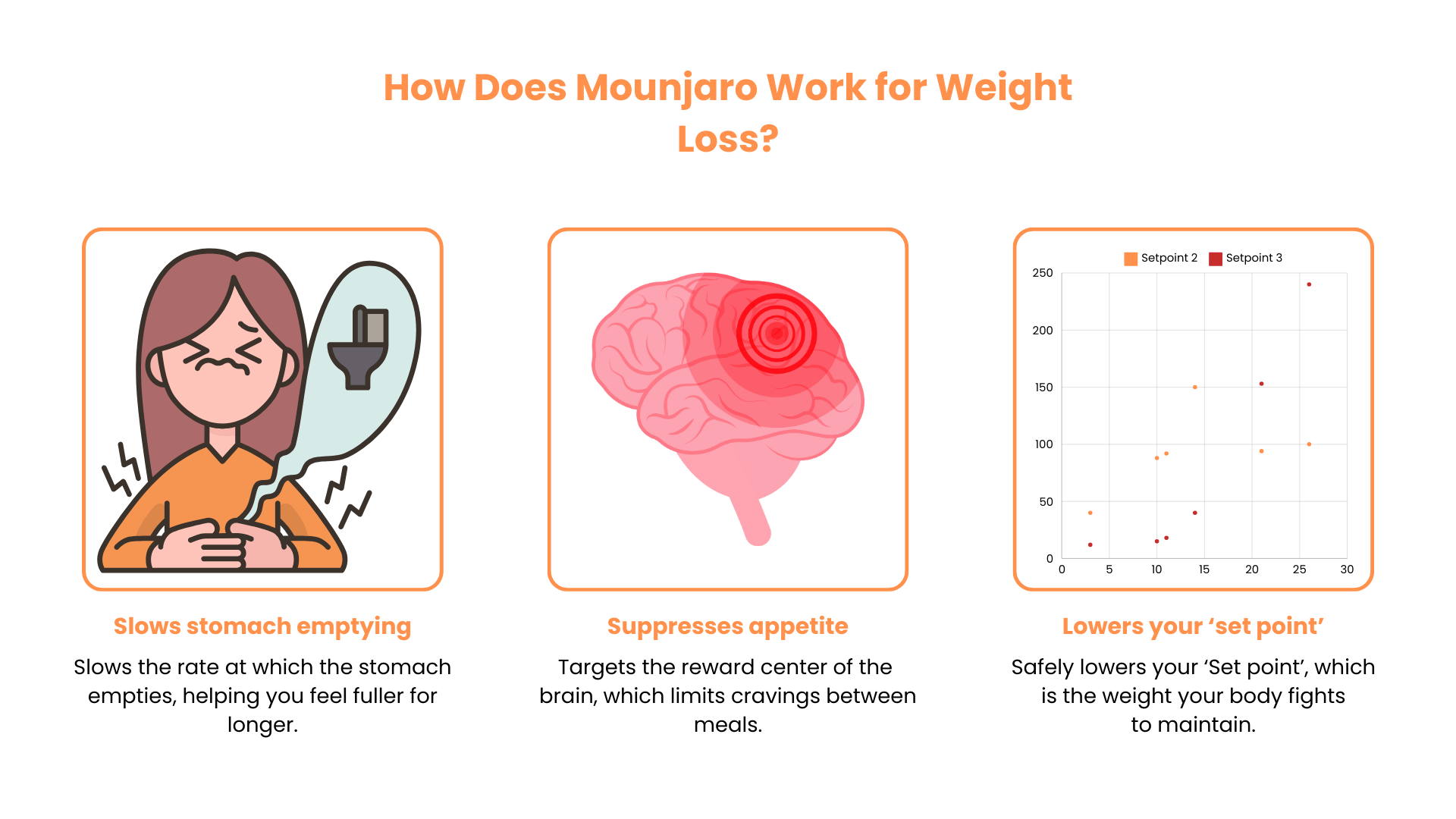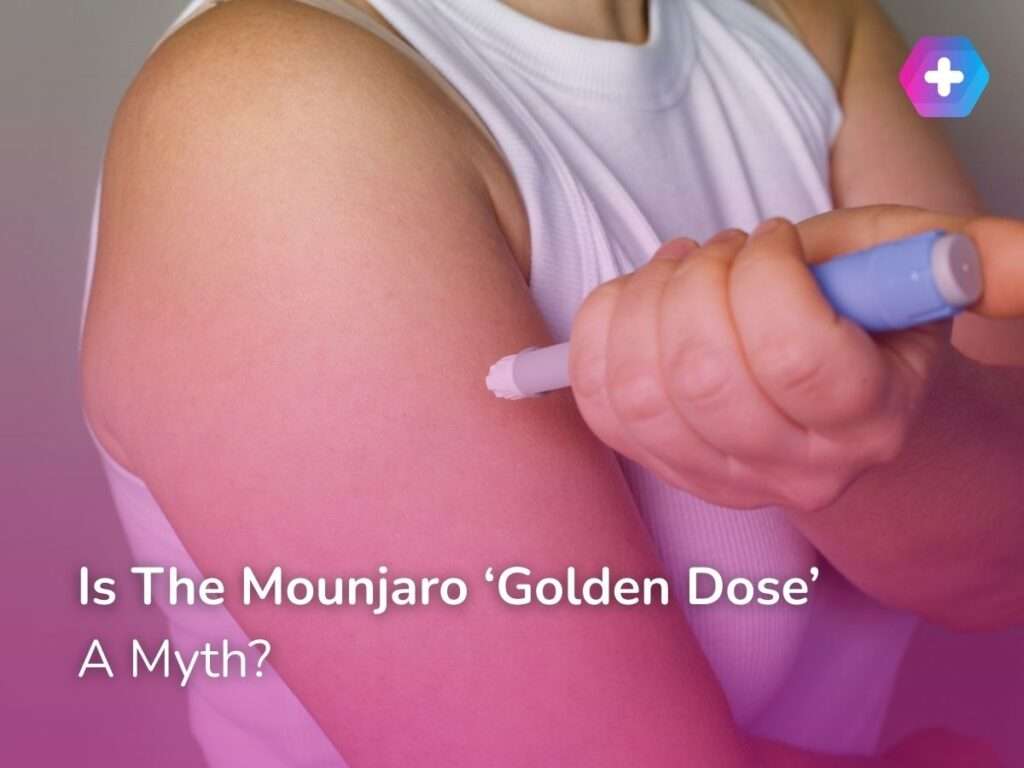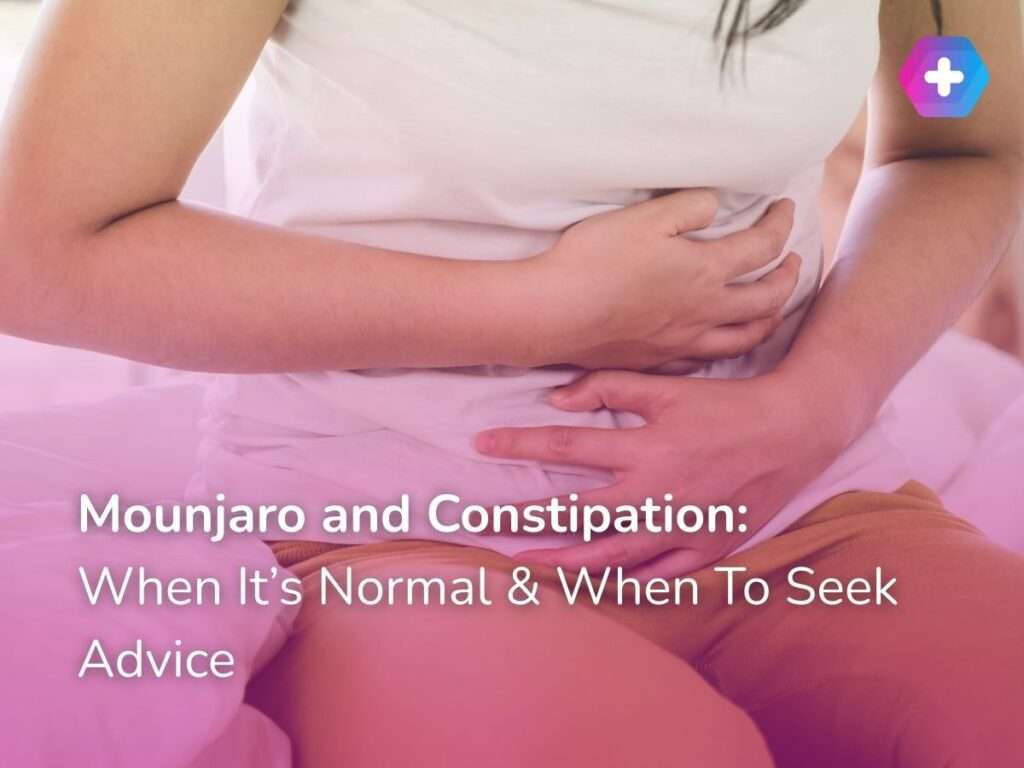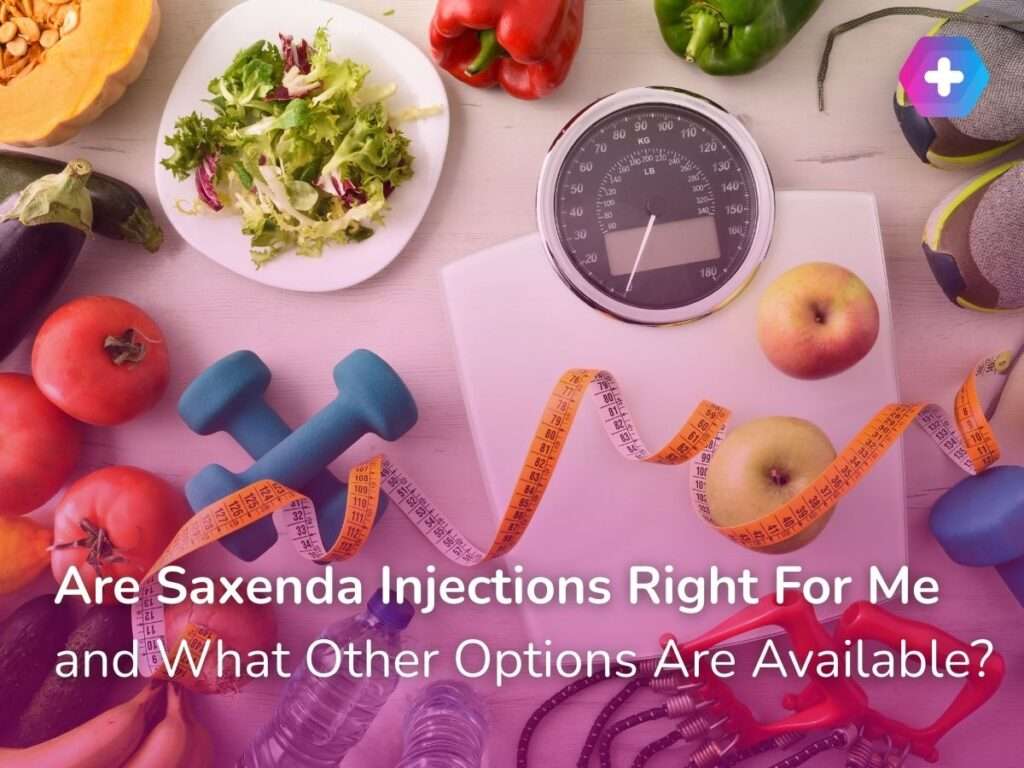Mounjaro has recently been approved by MHRA for chronic weight management and has got a lot of media attention since its launch. As obesity and diabetes often go hand-in-hand, finding effective treatments that address both issues is crucial.
In this article, we will explore the potential weight loss outcomes for patients using Mounjaro, how much weight loss they can expect, examining various factors that influence these results.
How does Mounjaro work for weight loss?
Mounjaro (Tirzepatide) works by mimicking the effects of incretin hormones, which are natural substances that help to regulate blood glucose levels. Specifically, Mounjaro targets both the glucagon-like peptide-1 (GLP-1) and glucose-dependent insulinotropic polypeptide (GIP) receptors. This dual action not only improves insulin secretion and reduces glucagon release but also promotes a feeling of satiety, leading to reduced caloric intake.

How much weight can I lose on Mounjaro?
Studies indicate that Mounjaro can help achieve an average weight loss of about 25% over one year. For example, if your weight is 100kg, you might lose 25kg after 72 weeks.
Mounjaro suppresses hunger and prevents food cravings.
The effectiveness of Mounjaro in weight loss depends on individual responses to the medication and the commitment to improving diet and lifestyle.
Mounjaro First Month Results
According to clinical trials, on an average you can lose up to 4% of your body weight after one month and 6% after two months. However, the weight loss achieved by Mounjaro patients vary depending on dosage, your health conditions, and lifestyle factors such as diet and physical activity.

Can you lose more weight on higher doses of Mounjaro?
Clinical trials suggest that when you gradually increase the Moujaro dosage, you will start losing more weight.
What is the starting dose of Mounjaro? The starting dosage of Mounjaro is 2.5 mg for the first 4 weeks. Once your body gets used to the medicine, your healthcare provider may increase your dose to 5mg for significant weight loss.
After a month, your prescribing clinician will check the impact of Mounjaro 5 mg on your weight and whether you are having any side effects. If 5 mg is adequately leading to your desired weight, your GP might advise you to stay at this strength for a long time. If you are not having any severe side effects, you can keep increasing your Mounjaro strength every four weeks until you reach a maintenance dose.
There are 3 maintenance doses of Mounjaro:
– 5 mg
– 10 mg
– 15 mg
In a study, the effects of Mounjaro at dosages of 5 mg, 10 mg, and 15 mg were compared. The findings revealed that after 40 weeks, the 5 mg dose resulted in an average weight loss of 7.6 kg, the 10 mg dose led to a loss of 9.3 kg, and the 15 mg dose achieved a weight loss of 11.2 kg.
However, as we’ve already discussed, people react differently to medication. For instance, some may lose more weight on lower doses of Mounjaro if they’re more sensitive to its effects, eliminating the need to increase the dosage.
How long does it take for Mounjaro to start working?
Mounjaro starts working with your first dose, but you might not feel its effects right away. The dosage is increased gradually each month to let your body adjust and reduce the risk of severe side effects from a higher dose taken too early.

Mounjaro for Weight Loss
If Mounjaro is taken for weight loss, the initial effects on appetite can be noticed in a week after the first injection. Many patients reported a decrease in hunger and a quicker sensation of fullness when eating, which contributes to a lower calorie intake.
The rate at which a patient loses weight depends on several factors:
Baseline weight: Individuals with higher initial weights may notice quicker results.
Diet and exercise: Combining Mounjaro with a healthy diet and regular exercise enhances its effectiveness.
Metabolic rate: Individual metabolic differences can affect how quickly weight loss occurs.
According to research, you can expect a significant weight loss of 20%-25% after 72 weeks on Mounjaro.
Mounjaro for Diabetes
Mounjaro works for type 2 diabetes by targeting the underlying mechanisms that contribute to high blood glucose levels. It lowers your sugar levels by:
– Encouraging the pancreas to release more insulin after meals,
– Reducing the production of glucose by the liver,
– Improving the efficiency of glucose uptake by cells, and
– Increasing the body’s sensitivity to its own insulin.
How long does Mounjaro stay in your body?
Mounjaro is a weekly medicine, and it takes about 5 days for at least half of the medicine to break down and leave your body. We call this the half-life of the medicine, and it helps experts figure out how much you should take. Mounjaro has a pretty long half-life, which is why you only have to inject it once a week.
But because it stays in your body for longer, it also takes more time for your body to get rid of the medicine completely. So, after you stop taking Mounjaro, it might take a few days for any side effects to disappear. Actually, even after you’ve had your last dose, there might still be some medicine left in your body for up to 25 days.
Buy Mounjaro Online in UK
In the UK, you can get a private prescription for Mounjaro from The Care Pharmacy Weight Loss Clinic in Bradford . To be approved for a Mounjaro prescription, strict eligibility criteria must be met. It involves completing an online consultation to determine your eligibility.
FAQS
- How can I maximise my weight loss on Mounjaro?
To maximise the benefits of Mounjaro, you should eat a balanced diet, including fresh fruits and vegetables, whole grains, lean protein, and low-fat dairy products.
- How long should you stay on Mounjaro for weight loss?
Due to its higher dosage, Mounjaro starts working within the first week, but it can take a year to see the optimum weight loss. A study revealed an average weight loss of 6% by the 8th week on Mounjaro. This percentage continued to rise steadily throughout the 72-week duration of the study. The rate of weight loss also depends on your current weight and health conditions.
- Is Mounjaro safe to use for weight loss?
Yes, Mounjaro is safe to use for weight loss if your BMI is 30 or higher (obesity), or. a BMI of 27 or higher (which is considered overweight), and at least one health condition related to weight, such as high blood pressure, high cholesterol, or obstructive sleep apnea.
- How is Mounjaro different from other weight loss injections?
Mounjaro (Tirzepatide) differs from other weight loss injections mainly because it mimics two hormones, GLP-1 and GIP, enhancing its effectiveness in weight loss and improving metabolic parameters. Most other injections, like Semaglutide, only target GLP-1. Mounjaro also shows higher weight loss in clinical trials and has a unique side effect profile due to its dual action.
- Why am I not losing weight on Mounjaro?
If you’re not losing weight on Mounjaro, it could be due to insufficient dosage or time, lack of calorie deficit diet and exercise adherence, individual metabolic differences, other health conditions, medication interactions, or inconsistent use. Consult your healthcare provider for adjustments or further evaluation.
Medically reviewed by
Mohammed Lakhi
Superintendent Pharmacist













